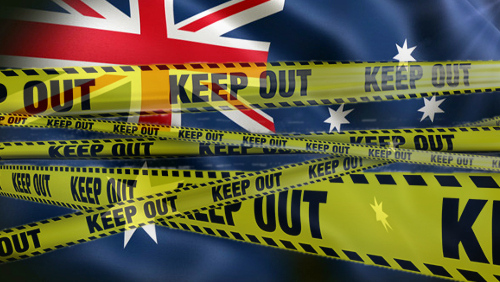 Australia has introduced legislation that would impose stiff fines on online gambling operators serving local punters without a local license.
Australia has introduced legislation that would impose stiff fines on online gambling operators serving local punters without a local license.
In April, Minister for Human Services Alan Tudge vowed to introduce legislation amending the Interactive Gambling Act 2001 to close the loopholes that allowed Aussie-licensed operators to offer online in-play sports betting.
On Thursday, Tudge filed the Interactive Gambling Amendment Bill 2016 (viewable here), part of the government’s three-pronged approach to revamping Australia’s online gambling market. This includes banning those in-play apps, cracking down on internationally licensed online operators and establishing a National Consumer Protection Framework (NCPF).
The Act will amend the currently “ambiguous” law to make it explicitly clear that any operator taking bets from Australian punters without a local license is breaking the law.
Tudge will authorize the Australian Communications and Media Authority (ACMA) to impose civil penalties – up to AUD1.35m (US $1m) per day for individuals and up to AUD6.75m for companies – on violators without having to involve the Australian Federal Police.
Tudge plans to introduce other “disruption measures”, including placing offending companies’ directors or other principals on the Movement Alert List so that they can be clapped in irons the minute they violate Australian air space. Tudge also plans to create “name and shame lists” of operators that Australians should avoid.
As for the NCPF, Tudge is meeting with state ministers on November 25 to discuss the details, which will likely include a ban on operators offering punters credit, a voluntary pre-commitment scheme and a national self-exclusion list.
CLOCK TICKING FOR POKERSTARS, PARTYPOKER?
Australia’s new rules will force tough choices by operators doing business in New Jersey’s regulated online market, as Tudge says he’ll share his ‘name and shame’ lists with gaming regulators in other jurisdictions.
New Jersey’s Division of Gaming Enforcement (DGE) has said it doesn’t really care if its licensees operate in so-called ‘grey’ markets but would question the suitability of any licensee operating in a ‘black’ market, i.e. where the government has taken “affirmative, concrete actions to actively enforce laws that prohibit online gaming, or have issued unequivocal official pronouncements that online gaming is not legal.”
Australia permits only online sports betting, and while the nation’s poker players have long lobbied to be allowed to play online, the government shows no signs of expanding beyond sports betting.
This could cause problems for companies like Amaya Gaming, whose PokerStars brand is very popular down under and in New Jersey. Ditto for PartyPoker, whose parent company GVC Holdings has also established a New Jersey footprint. That is, unless the black market stance is just posturing, and the DGE is really only interested in cracking the whip if it catches someone drinking New Jersey’s milkshake.